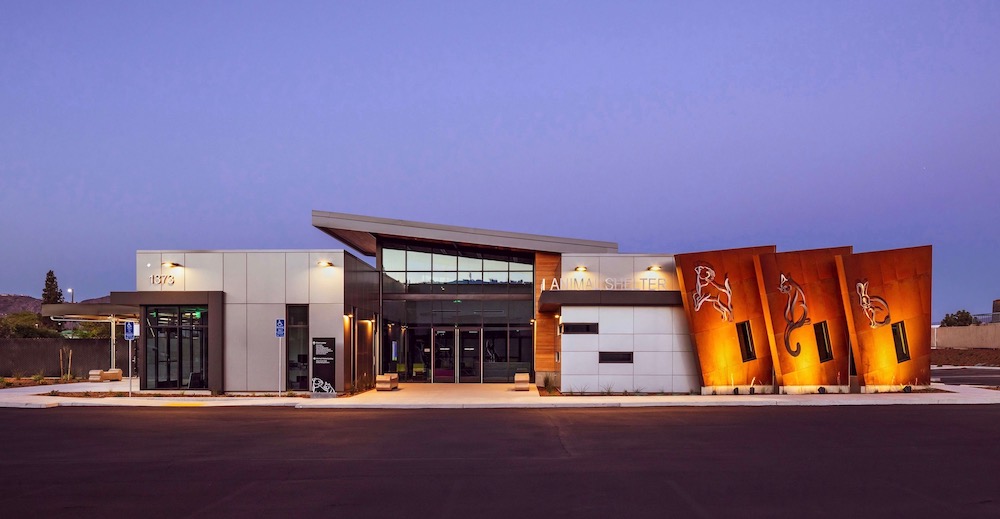Daily Business Report-June 5, 2018
Photo illustration by John Osborn D’Agostino
Election Day Crib Sheet:
What to Watch As the Results Come In
By Ben Christopher | CALmatters
There are 53 congressional races. Another 101 open seats in the California Legislature. Add to that heated statewide contests for offices that you’re familiar with (governor, attorney general) and a few that you might not be (treasurer, controller, board of equalization). Oh, don’t forget the propositions.
There’s a lot to keep track of on the California ballot. Here are eight questions to keep in mind as you cast your vote and wait for the results to trickle in.
Who’s on second in the governor’s race?
No fewer than 27 candidates hope to replace Gov. Jerry Brown. California’s top two electoral system, which only allows the first and second place winners to move onto the general election, regardless of political party, means that all but 25 will soon be heading home.
The polls are in strong agreement that Democratic Lt. Gov. Gavin Newsom is all but certain to grab one of those top two spots. The big question is who will come second.
The leading contenders are Republican John Cox, a lawyer and accountant from the San Diego area, and Antonio Villaraigosa, the Democratic former mayor of Los Angeles, according to most surveys. Republican Assemblyman Travis Allenof Huntington Beach and two Democrats, state Treasurer John Chiang, and Delaine Eastin, the former superintendent of public instruction, are all hoping those poll are spectacularly wrong.
If Cox makes it past this primary, California’s gubernatorial race will assume a familiar partisan pattern: Democrat versus Republican. Cox isn’t particularly well known and has been endorsed by President Trump, so that contest will be Newsom’s to lose in blue California. But if Villaraigosa edges out Cox, the state will have its first ever intraparty gubernatorial general election.. Many Democrats believe that will benefit the party as a whole—and help capture GOP-held congressional seats key to the Dems taking control of the House—by discouraging Republican turnout in November. Team Newsom begs to differ.
Who will be shutout in Orange County?
California’s top-two system can punish a party with too many candidates in one race. In Orange County, Democrats face exactly that problem, where a bevy of political newbies have crowded into some of the state’s most competitive races and risk splitting the left-of-center vote, leaving the first and second spots to Republicans.
The threat is most acute in the contests to replace Rep. Darrell Issa in Vista and Rep. Ed Royce in Fullerton (both are retiring) and in the seat held by Dana Rohrabacher in Huntington Beach. All three are former Republican bastions that have trended purple in recent years.
Most political scientists say such shutout scenarios are rare in competitive districts, but Democrats don’t have much wiggle room. Nationally, they are hoping to flip at least 23 seats to take back control of the House. Democratic operatives have seen the possibility of a top-two shut-out coming for months, but aside from offering endorsements, buying advertisements, and good old-fashioned browbeating, there isn’t much the party can do.
Does outside money matter?
California elections are always expensive. But spending from independent expenditure groups, who can spend as much money as they like so long as they don’t directly coordinate with political campaigns, have played a significant role this year. Will it make a difference?
In the race for governor, a handful of millionaires have bet big on Villaraigosa, spending over $20 million in support his campaign. The former mayor’s position on education policy seems to be a big draw. Villaraigosa is an avid charter school supporter and has advocated for changes to tenure rules for public school teachers. But for all that money, Villaraigosa trails Cox in most recent polls.
Outside cash is also pouring into races that carry more symbolic weight than real power.
Eleni Kounalakis, the former ambassador to Hungary who has won some high profile endorsements in her campaign to become the next lieutenant governor, has also benefited from some $5 million in independent spending from Angelo K. Tsakopoulos, a Sacramento developer who happens to be her father.
And in the race to become the next superintendent of public instruction, which administers public school policy but typically doesn’t set it, over $7 million has been spent in support of Marshall Tuck, much of it from charter school advocates. Roughly $3 million has boosted the candidacy of his chief opponent, Assemblyman Tony Thurmond from Richmond, who is backed by the teachers union and other public employee unions.
Turnout: Will this time be different?
In non-presidential primary elections (like this one), the electorate tends to be older, richer, and whiter than the state as a whole.
Despite making up California’s largest single ethnic group, Latino voters are particularly underrepresented at the ballot box. In June of 2014, only 13.3 percent of registered Latino voters cast a ballot, compared to 25 percent of voters statewide.
This year could be different. It’s the first state referendum on President Trump, whose immigration policies in particular have galvanized many Latino voters. And the election features high-profile Latino candidates running for almost every statewide office. The Villaraigosa campaign has spent much of this year touring around Los Angeles and the Central Valley, hoping to engage a population that has historically not turned out.
Other Latinos candidates seeking statewide office include state Sen. Kevin de León who is running for U.S. Senate, acting Attorney General, Xavier Becerra, state Sen. Ed Hernandez who is running for lieutenant governor, and Secretary of State Alex Padilla.
Is this another Year of the Woman?
A record number of women are running for Congress this year, inspired in part by the Women’s Marches and the #MeToo movement. Nearly 60 are running in California, according to the Center for Women and Politics at Rutgers University. This election will be the first test of whether the surge in enthusiasm that has convinced so many women to run will also motivate voters.
In the lieutenant governor’s race, Eleni Kounalakis, Lidya Ortega, or Gayle McLaughlin would be the first women to be elected to that position. Ditto for Delaine Eastin and Amanda Renteria if either were to overcome the long odds against them in male-dominated field of candidates for governor. And in both of the state’s fiscal offices, two Democratic women—treasurer hopeful, Fiona Ma, and incumbent controller, Betty Ye—are the candidates to beat.
Voters in southeast Los Angeles will have an opportunity to weigh in more directly on #MeToo. Democrat Tony Mendoza, who resigned from the state Senate amid allegations that he sexually harassed his staffers, is running for his old seat. In fact he’s running twice—both to serve as his own temporary replacement until November and to serve out the next full term. In an overlapping state Assembly district, Cristina Garcia, who has also been accused of sexual harassment, is running for re-election too.
How powerful is the Republican brand?
A California Republican hasn’t won statewide office since 2006. In that year, Gov. Arnold Schwarzenegger won his re-election bid and Steve Poiznerbecame the state’s insurance commissioner.
This year, Schwarzenegger said he won’t be voting for either of the leading Republicans in the governor’s race, and Poizner is running again for his old seat—only this time, as a political independent. If Poizner makes it into the general election, that will put him in the running to become the first candidate to win statewide office as a “no party preference” candidate. It also may send a message to future center-right candidates that if they want to win in California, they’ll have to do it without an “R” after their name.
Is this Goodbye, Sen. Newman?
Last year, California Democrats (and one Republican) passed a transportation funding bill that raised the state’s gas tax for the first time since 1994. As soon as the bill was signed into law, Republicans organized an effort to recall state Sen. Josh Newman. Newman wasn’t the author of the bill, but he does represent a purple district in north Orange County, which he won in 2016 by a fraction of a percentage point.
The recall vote, which coincides with the primary election is more than just an Orange County phenomenon. Conservative activists hope to put a repeal of the gas tax increase on the November election ballot and Newman’s fate could be a test of how receptive voter will be to that effort. Plus, if Newman is successfully booted from office, that could inspire activists on both sides of the political spectrum to evoke the recall option more in the future to punish their ideological rivals
CALmatters.org is a nonprofit, nonpartisan media venture explaining California policies and politics.
__________________

El Cajon’s new animal shelter
now open for business
C.W. Driver Companies has completed construction of the new $10 million, 14,291-square-foot El Cajon Animal Shelter in El Cajon. The single story, contemporary animal care facility is open to the public and will provide veterinary and pet adoption services to residents in El Cajon and La Mesa.
Located at 1373 N. Marshall Ave. within walking distance of the former shelter, the animal care facility includes administrative offices, housing for animals, veterinary services for sick and injured animals, grooming, play and interaction areas, pet adoption services, an exercise area and more.
“We enjoyed collaborating with the City of El Cajon to develop a much-anticipated multi-purpose animal care facility that will serve the region for generations to come,” said Richard Freeark, chief operating officer at C.W. Driver Companies.
The animal care shelter is the city of El Cajon’s first collaborative design-build project and was funded by Proposition O special revenues. The new facility is double the size of the previous 50-year-old shelter, built in 1957, and is designed to enable future expansion. Design was by Colorado-based Animal Arts and San Diego-based Ferguson Pape Baldwin Architects.
__________________

American Specialty Health inks
$110 million office lease at The Elements
In a deal valued at $110 million, American Specialty Health Inc. has renewed its nearly 200,000-square-foot lease with Parallel Capital Partners at the Elements in the Sorrento Mesa neighborhood of San Diego. American Specialty Health comprises a large portion of the complex, which spans a total of 278,787 square feet. The lease is for more than 10 years.
The Elements is located at 10201 Wateridge Circle and 10221/10241 Wateridge Circle.
The three-building, five-story Class A office complex was acquired by Parallel Capital Partners in 2014. Since then, the nearly eight-acre property has undergone a more than $3.5 million capital improvement program, including extensive upgrades to common areas, fitness center upgrades, new landscaping incorporating seating areas adjacent to water features, a new outdoor workout area and painted exteriors.
The listing brokers for the transaction were Mike Hoeck and Matt Carlson with CBRE, and the outside broker was ALT+CO.
__________________
East Village development site sold for $1.35 million
Fabric Investments has sold a 5,000-square-foot mixed-use development site at 16th and K streets in East Village to buyer 16KSD for $1.35 million. The site is fully entitled for the development of a five-story, mixed-use building comprised of 13 residential units and individual retail and office suites. The new ownership plans to re-entitle the property to add residential units.
Colliers International San Diego Region represented buyer and seller in the transaction.
__________________
Insurance commissioner approves
1st cannabis Business Owners Policy
Insurance Commissioner Dave Jones has approved the first Cannabis Business Owners Policy (CannaBOP) in California. The American Association of Insurance Services (AAIS) designed the new CannaBOP program for cannabis dispensaries, storage facilities, processors, manufacturers, distributors, and other cannabis-related businesses operating in the state.
“Cannabis businesses need insurance coverage to help them recover when something goes wrong just as any other legalized business does,” said Jones. “This first-of-its-kind program will make it easier for more insurers to enter the market and fill coverage gaps for cannabis businesses.”
AAIS developed a California specific business owners policy program for the cannabis industry, complete with forms, rules, and rating information..
__________________
The McKinney Family contributes
$4.5 million to Meals on Wheels
Meals on Wheels San Diego County has received a $4.5 million gift from The McKinney Family. The building owned by Meals on Wheels on San Diego Avenue will be named The McKinney Family Meals on Wheels San Diego County Administration Center for the useful lifetime of the property. The location houses the Metro Service Center, Community Outreach and Administrative offices.
The family’s support began several decades ago through the donations of Vi and Dan McKinney. In the last several years, daughters Norinne McKinney, Molly Schulze and Gayle Peterson have continued the family’s giving in support of the seniors served in San Diego County.
Meals on Wheels San Diego County delivers over 450,000 meals per year to over 3,200 seniors. The organization is driven by the generous support of volunteers to deliver meals to homebound seniors. Meals on Wheels San Diego County utilizes, on average, 150 volunteers per day.
__________________
UC San Diego nets No. 2 spot on
new list of globe’s best universities
A new world ranking names the University of California San Diego the globe’s 20th best university; the campus is ranked 16th among U.S. universities. The annual list from the Center for World University Rankings (CWUR) measure universities’ quality of research, faculty, influence, enterprise and successful alumni.
The rankings evaluated 2,000 universities worldwide, making it the largest academic ranking of global universities, according to CWUR. Read more…
__________________
Two-pronged antibodies draw
immune killers directly to cancer cells
Our immune system’s arsenal of defenses usually protects us from cancer. But sometimes, cancer cells overwhelm or evade this elaborate defense system. In the lab of biochemist and immunologist Christoph Rader, PhD, associate professor at The Scripps Research Institute in Florida, scientists have engineered a new type of anti-cancer antibody, one intended to enhance nature’s cancer-fighting strategies by attracting killer T cells directly to cancer cells covered with a distinctive protein. Read more…
__________________
Phase 1 trial finds experimental drug
safe in treating lymphocytic leukemia
Reporting results from a first-in-human phase I clinical trial, researchers at University of California San Diego School of Medicine have found that treatment with cirmtuzumab, an experimental monoclonal antibody-based drug, measurably inhibited the “stemness” of chronic lymphocytic leukemia cancer (CLL) cells — their ability to self-renew and resist terminal differentiation and senescence. Read more…
__________________
Engineers develop tiny ‘nanorobots’
that clear bacteria and toxins from blood
Engineers at the University of California San Diego have developed tiny ultrasound-powered robots that can swim through blood, removing harmful bacteria along with the toxins they produce. These proof-of-concept nanorobots could one day offer a safe and efficient way to detoxify and decontaminate biological fluids.
__________________
Scripps Health invests $398 million
into community benefits in region
Scripps Health invested $398 million into community benefit programs in San Diego County during fiscal year 2017, which accounted for 14 percent of the nonprofit health system’s total operating expenses, the institution reported. Scripps released its 2018 Community Benefit Report detailing its community benefit activities for fiscal year 2017 (October 2016 through September 2017). A copy of the report, which includes data on each of Scripps’ four hospitals, is available online at www.scripps.org/communitybenefit.
__________________
Cubic announces divestiture closing
Cubic Corporation announced the successful closing of its divestiture of the Cubic Global Defense Services business to Valiant Integrated Services. Cubic received approximately $135 million cash at closing on a debt free, cash free basis, plus $3 million of contingent consideration tied to certain contract wins expected over the next 12 to 24 months.
__________________
Encore Premier Properties to open
doors to new Bankers Hill location
San Diego real estate brokerage firm Encore Premier Properties Inc. announces the launch of its new office location with an invitation-only event on Saturday, June 9, from 7 to 10 p.m.. At the intersection of Fifth Avenue and Upas Street, the centerpiece of the new space is an expansive mural by San Diego artist Gretchen Weidner that emphasizes San Diego’s geographic beauty and diversity.
“Throughout my more than three decades in real estate, I have focused my energies toward building a team, clientele and atmosphere that reflects a high standard of integrity, along with a determination to exceed client expectations while creating a positive place for agent and client alike,” said President and Managing Broker Jeff Davidson “This new office is a reflection of that work and those values while also turning an eye toward the future.”
Commissioned painter Gretchen Weidner came to San Diego in 2014 and has made the city her canvas, painting her art on the walls of public and private businesses. In addition to her mural work, Gretchen creates personal series and collections that often focus on upending the view of stereotypical gender roles. Her series and collections are available for purchase on prints, apparel and home goods, as are the originals paintings. Learn more about Gretchen and see her work by visiting www.gretchenweidner.com.
__________________
Personnel Announcements
Adina Veen joins chamber-affiliate LEAD San Diego

Adina Veen has been named the new director of leadership programs for LEAD San Diego, an affiliate of the San Diego Regional Chamber of Commerce.
Veen joins LEAD from United Way of San Diego where she was managing its Women’s Leadership Council program, volunteer engagement, and fundraising.
At LEAD, Veen will oversee the strategic direction, development and implementation of LEAD’s five leadership development programs: Advance, IMPACT San Diego, INFLUENCE San Diego, Public Leadership Institute, and San Diego Young Leaders.
The Director, Leadership Programs role is a new position created to enhance LEAD programming. Veen also will guide LEAD’s alumni engagement and fundraising. Veen is a LEAD IMPACT graduate and is a participant in this year’s Advance class.
__________________
Cubic names Jeffrey Blakeman as VP
of manufacturing and procurement
Cubic Corporation announced the appointment of Jeffrey Blakeman as vice president, manufacturing and procurement. Blakeman will replace current Vice President of Manufacturing and Procurement Dave Lapczynski, assuming the role as of July 2. Lapczynski will transition to an executive advisory role and continue to provide support until his retirement. Blakeman will be based at Cubic’s main manufacturing and procurement operations in Tullahoma, Tenn. Prior to joining Cubic, Blakeman was the vice president of operations forBombardier Transportation, Americas where he led the operational, cultural and process transformation for the eight sites across the United States, Mexico and Canada. Additionally, Blakeman served as executive director of operations for GE Energy Connections and executive of manufacturing for GE Aviation.



